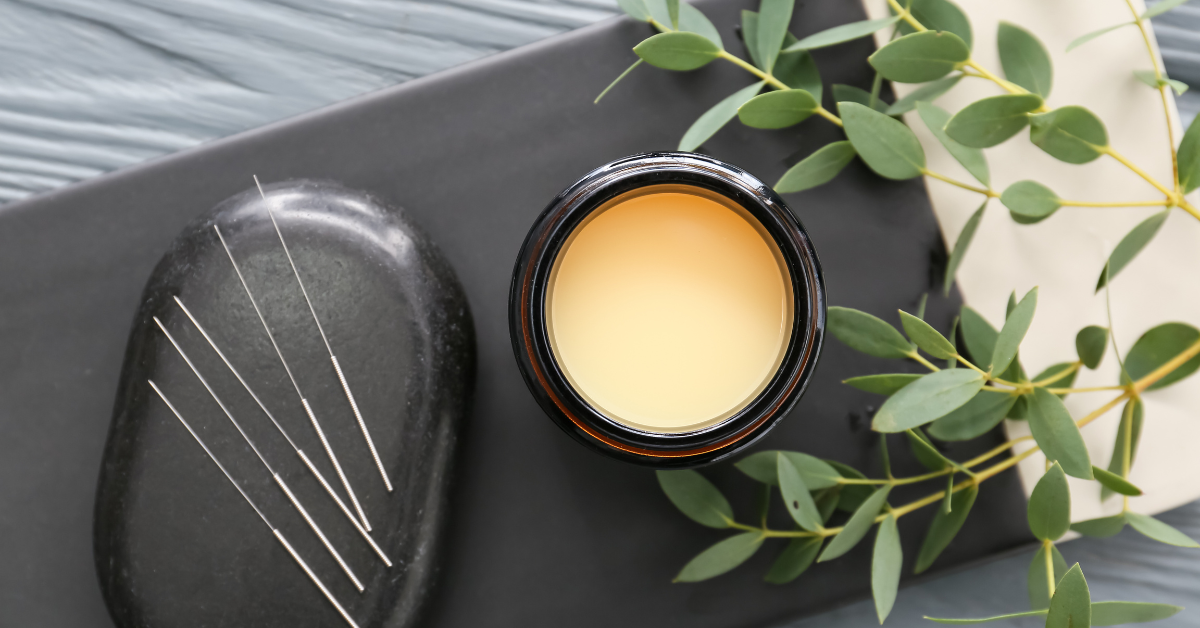65. ACT Therapy for Anxiety and OCD with Ingrid Ord, psychotherapist and author
In this episode, Carrie interviews Ingrid Ord, a therapist and author of ACT with Faith, about Acceptance and Commitment Therapy (ACT). They discuss how ACT helps individuals accept difficult emotions and take action toward their values, particularly in managing anxiety and OCD.
Episode Highlights:
- The power of accepting anxiety and fear instead of avoiding them, leading to personal growth and progress.
- ACT’s role in OCD treatment, helping individuals confront anxiety without relying on compulsive behaviors.
- How ACT helps people separate their values from their obsessions, reducing guilt and shame in OCD.
- The connection between ACT and Christian faith, offering a deeper understanding of life’s struggles through God’s promises.
Episode Summary:
Today, we’re diving into Acceptance and Commitment Therapy (ACT) with Ingrid Ord, a therapist and author. ACT is gaining traction in OCD treatment, and I’m excited to share what I learned from Ingrid. ACT emphasizes accepting discomfort and taking committed action, even when anxiety or fear tries to stop you.
Ingrid shared that she gravitated toward ACT after trying other methods like CBT and REBT. ACT felt gentler and more in line with her values, making it a better fit for her and her clients.
In ACT, we accept the anxiety we feel instead of avoiding it. For example, if you’re anxious about a job interview, ACT helps you recognize that the anxiety is tied to your values—like wanting to make a good impression—and encourages you to act despite the anxiety. This approach is particularly helpful for OCD, where compulsions and avoidance only feed the anxiety.
ACT also highlights the importance of connecting with your values. For someone with OCD, recognizing that their obsessions don’t align with their true values—such as harming others—can help reduce guilt and shame.
For those of us with faith, ACT’s principles align well with trusting God’s plan. Ingrid and I discussed how faith can strengthen acceptance, especially when we’re dealing with difficult situations like chronic pain or anxiety. Even when we don’t understand why we’re struggling, leaning into God’s grace can help us find meaning and strength in our challenges.
I hope this conversation helps you rethink how you approach therapy and empowers you to accept your struggles while still taking steps forward.
Related Links and Resources:
Transcript
If you’ve been a fan of the show for a long time, you know that we love to discuss different types of therapy here. I could be helpful for people who are struggling with anxiety or OCD. I like to do that because you always hear people say, “Eh, I tried therapy. It didn’t work for me”. Did therapy not work because it wasn’t the right modality for you? Did therapy not work because you didn’t have a great relationship with your therapist? There are so many variables there that we could die suck.
Today on this show, we are talking with Ingrid Ord, who is a therapist and author of ACT With Faith. ACT is a type of therapy that we’re going to be talking about today. And that stands for Acceptance and Commitment Therapy. If you want the long name, this wasn’t a therapy I knew much about. So, it was interesting to learn from Ingrid. And I know it’s a therapy that’s being incorporated more and more in OCD treatment. I hope you enjoy this interview.
Ingrid, I believe that therapists choose modalities like therapy that align with them personally and professionally. So I’m curious: how did you become so interested in acceptance and commitment therapy, also called ACT?
Ingrid: I’ve been working for a number of years, right? The modality I was in before I went to CBT and REBT was client-centered therapy, which fit me very well. REBT, Rational, Emotive, Behavior, Therapy. And it can be quite very proactive, and I found that quite hard. Then I found ACT, and suddenly, there was a therapy that did everything I’d been training up until that point. But allowed a much softer, gentler approach to actually being in the client’s space and not pulling them into your space.
Carrie: REBT is pretty confrontational.
Ingrid: It’s very confrontational, and you have your disputations. It works really well. They were male lawyers.
Carrie: Certain populations might be necessary for us.
Ingrid: Certain populations. The thing with ACT is that it seems to work at the cold front. It’s one of the few therapies I’ve found that when the patient or the client actually needs it, it works for them.
Carrie: Okay. So, tell us a little bit about what ACT therapy entails.
Ingrid: Well, very much as the name says, within the acceptance part, it’s about willingly accepting that we have experiences that we don’t want and going into the experience. And being with it because these experiences invariably tell us something very important about our values. If I’m anxious about something, it’s probably because it’s something that there’s something in there that’s very important to me. So, if I’m anxious about meeting someone, it could be that it’s very important to me to make a good impression on this person. And why is it important to me? Maybe I’m envisaging a future relationship, a job, or something like that. It’s important to be within the experience itself. It’s tempting not to want to be there, to distract ourselves, and to all the denial stuff. And so the link between accepting what we’ve got in the moment and committing ourselves to taking action will take us in the direction of our values. Never mind what’s going on. What’s very attractive to me?
Carrie: So there’s a sense of I’m accepting that I have anxiety about maybe going to a job interview because I want to look good or I really want a new job, but even though I’m anxious, I’m still going to work through that to the point where I’m committed to saying, I’m still going to put myself out there for this opportunity. I’m still going to the interview, show up, and do my best.
Ingrid: Yes. So you take public speaking is a common problem with many people often, you know, seen this done in, in workshops and I do it myself is to acknowledge to the people there, how anxious I am, but I’m here because this is very important to me putting this across is a very important thing. And so I brought my anxiety was me, and I’m doing it anyway.
Carrie: That’s good. I imagine that you’ve seen that it can help people with anxiety work through avoidance because avoidance feeds that cycle of anxiety and worsens everything.
Ingrid: No, yes. I have a very dear friend in the app community, Robin Molson. She showed me in one of the first workshops. It’s a series of concentric circles. We’re right in the beginning of the circle, is what you are not wondering. And then the next circle will be what you do to avoid it. And then the next circle will be the results of what you’re doing to avoid it. And then there’s another biggest circle, the results of the results. So you end up with a little problem in the middle and the huge amount of consequences from actually avoiding taking action and sitting, you know, doing what you needed to do, whatever it is that you need to do that you’re anxious about.
Carrie: I’m curious about this in terms of OCD. Where people are taking action, but they’re doing things that they don’t want to be doing. They’re engaging in compulsions, trying to get out of repetitive thought patterns. What would ACT say about that?
Ingrid: Well, one of the first things within there is the good old exposure exercises that you do and help the person to expose themselves to the situation so that they actually feel the anxiety. OCD is a specialized sort of area in that not that you have to be specialized, but you need to realize that the obsessions and the compulsions are there in order not to feel the anxiety. So you help the person go backward in the process to hopefully not do the compulsion or let the obsession go. And then, they will feel the anxiety and expose themselves to the feeling of the anxiety as being something totally normal. It’s going to happen.
You have anxiety and are doing all these things to stop yourself from feeling anxiety. That is totally normal, but now it’s all become a big problem on its own.
So we need to unpick that take you backward so that you see that you actually can feel the anxiety. And live and get on with things, and it goes away. It always amazes me how people are so amazed that it goes away that you will stop thinking about this. You will, and it will go away if you stop listening to it and arguing with them.
Carrie: Right. And I think sometimes, in OCD treatment, that first step is really developing an awareness of how this plays out in a person’s life. And then being able to separate, like, I am not my OCD. I’m dealing with OCD.
Ingrid: Oh, yes.
Carrie: But it’s not my character. I may have these obsessions about hurting someone, but that’s not my value system. My value system is in loving people and caring for people. And that’s been shown through their behavior.
Ingrid: Yes, absolutely. And it’s strange that you should mention that about, you know, not me and my values system. Very often that is a factor within OCD is that things are occurring, obsessions, compulsions that are totally in opposition to what their value systems are, which, of course, creates an immense amount of guilt and shame and so on, and actually help the person to understand that because it’s in your value system. That’s why you have these. The very fact that you’re so afraid of that means you’re going to have the obsession of the compulsion.
Carrie: And we’ve talked about this before on the show, I think in your relationship to scrupulosity that people.
Ingrid: Yes.
Carrie: Those who are more spiritual and who have a connection to God are more likely to struggle with scrupulosity if they have OCD. I think that I can really see how this would be helpful for people with that sense of, there’s say, acceptance over the issue. And then you even said something earlier about taking it along with you. Can you talk with us a little bit more about that? Cause I know that that’s also a principle.
Ingrid: I often use the metaphor of a backpacker over the shoulder bag and say, look, you’ve got this thing, and it’s stuck to you, and it’s not going to go away. It’s like one of those magnetic games: as you move, it’s going to move with you. So instead of spinning off, trying to push it away, put it in your backpack, put it in your sling bag, and go and do what you want anyway because it won’t leave you.
So go ahead and do it. And it really helps to visualize it as well. So sometimes, I’ve had somebody visualize a little purple man who was giving her absolutely. I guess you should put them in the bag about herself, esteem, and all arresters and take him with you. And, of course, she must always be careful not to disrespect the mind. You’re not showing disrespect for the mind because the person needs to know your mind is doing its job. It’s just doing it in a bit of a weird way right now.
Carrie: It’s trying to protect you.
Ingrid: We always need to be careful not to undermine the mind’s job and get the person to feel that their mind is somehow defective. That’s actually a very important part of actors. There is nothing wrong with you. You’ve got problems because there’s everything right with you.
Carrie: Oh, wow. This is a very interesting reframe for people.
Ingrid: Isn’t it wonderful?
Carrie: It takes off that shame layer, really.
Ingrid: Yes. And the fear of, you know, am I losing it? I always joke that the least funny joke ever is of all the things I’ve lost in life. I miss my mind the most.
Carrie: I’m curious for you: how does ACT therapy align with faith in God and biblical teaching?
Ingrid: Actually, that’s a very close fit because the stitching with the thing I’m trying to avoid and actually sitting with it and willingly accepting it is much easier as a Christian because I have got the added strength of grace without being a Christian. I willingly accept that struggling against this thing will make me worse, but that’s just pure straight logic, and I learn it throu
Transcript
Carrie: Hope for anxiety and OCD, episode 65. If you’re new to the show, I’m your host, Carrie Bock. And we are all about using shame, increasing hope, and developing healthier connections with God and others.gh experience, and that’s how it works. But now that I’m a Christian, I know that all things work together for the good of those who love the Lord. And so whatever I’m experiencing is somehow going to work towards my good. And if I am in it and with it and thinking about God’s promises, you know what He has promised me here, it increases my faith.
Carrie: Everything is purposeful. I think one thing as Christians that we fight against sometimes. Is, you know, okay, God, why am I going through this? Can you please take it away so that I don’t have to deal with it anymore because it’s uncomfortable and it’s painful. And I know that you have the power to do that. And instead of, like you were saying, really leaning in and saying, okay, there must be some purpose that this experience is here.
Ingrid: Yes.
Carrie: And God has allowed it in my life for some reason or another, you know, maybe it’s to help somebody down the road. That’s going to be going through a similar experience; maybe it’s to grow my character internally, and I could see how this therapy could help you lean into that.
Ingrid: Sometimes it’s to help me to learn something that I really need to learn. You’re like recently after I tell you at the end, but we’ve been living on a boat, and I tend to live in my head, but you can’t when you’re on a boat, and I’ve seen some many beautiful things and outside that I wouldn’t have been part of. Cause that would have been busy in my hand.
Carrie: I know for me right now, I’m dealing with some chronic back pain related to my pregnancy. It’s taught me so much about many different things, but really relying on God, understanding my limitations, and having compassion for my clients with chronic pain. I think that it’s not over yet. So, I think there are probably still more things that I will learn or somehow will grow from this experience of going through it.
But it is hard to accept when you’re in the middle of it. You know, it’s like, I can take my back pain with me to exercise and recognize that I don’t feel like exercising because I’m in pain. But when I start to do the stretching and the yoga and the things that I know will be good for me and the core exercises, I start to feel better. And I know that what I’m doing is not exacerbating anything. It’s trying to help the other muscles support my back and support. So I can see that in what we’re talking about today.
Ingrid: And would you say that it would then help you with empathy was chronic pain patients who sometimes seem to be quite childish, or it helps to have empathy with that to say, I know it feels really, really, really hard.
Carrie: Sure. Have you seen in terms of biblical characters that you’ve studied how they may have accepted a situation and then acted based on it?
Ingrid: One of the things that mean a lot to me is the three Hebrew children, Shadrach, Meshach, and Abednego, being thrown in the fire. And they said,” I think it was never that our God could save us from the fire, but even if he doesn’t, we still weren’t worshipping here.” That’s been a lot to me. There’ve been a few occasions in my life where, you know, you’re up against it, and it’s like, do this or else. And even if God doesn’t save me. So that’s one and the other one, really his job, even though he slays me when I trust him.
Carrie: Yes.
Ingrid: I struggle to get through this without getting emotional. But there’ve been very, very hard times in my life where that’s resonated in my head that God, I don’t know what you’re doing. And it feels like this is killing me, but I trust you.
Carrie: Tell us a little about the book you wrote, “ACT With Faith.”
Ingrid: Well, I wrote it initially. The audience I chose was non-Christian therapists because I believe that there are many out there who are highly competent and would be very willing to work with Christians. With their own belief because, you know, ACT has a pragmatic Trist criteria which states that whatever the client believes is the truth in that room at that time. So even with a non-Christian therapist, Christian clients’ truths are what’s important.
So, I thought I’d put out there what Christian truth is in terms of the six ACT processes or the six major processes lined in ACT. So, the therapists could relate process by process to various aspects of Christians’ beliefs. And I also wanted to give them eight for their Christian clients. So I put in a whole lot of appendices, which a client hands out, but if there’s something they don’t understand, like grace, they can hand it to their clients, and their clients can see how it relates to the whole ACT process.
Carrie: I like that a lot. Who has been resonating with the book, or have there been other people as well that have picked up on it, maybe clients that have read it and resonated with it or a Christian therapist?
Ingrid: I found it actually at a wide range of people because many clients have resonated with it. And people who are not Christians. People have come to me to say, “How can we adapt this for Muslim clients?” or I am trying to help and explain to them that the way I work is to say if I have a Muslim or Hindu or another religion, we have a religious book, and this is what it says. And I’m sure there are some things similar to this in your book. Can we see if we can find it? And there is something like if we’re dealing with marriage or relationship issues or whatever. People who are Christians who are not Christians
Carrie: That’s awesome.
Ingrid: In a very wide range of people.
Carrie: Towards the end of every podcast. I like to ask our guests to share a story of hope, which is a time in which you received hope from God or another person.
Ingrid: Kind of alluded to this, but in 2018, my husband and I both felt that God was indicating to us to leave South Africa and return to the UK. The unfortunate part about it was that we would have nothing because of, you know, exchange rates, etcetera. Various factors meant that we would arrive here was nothing. We have about, so we’ve lived on the boat. It wasn’t supposed to be for three or four years, but that has been that, and it’s been very hard. The summers are beautiful, of course. And that’s what I was alluding to earlier with, you know, at being outside, seeing the nature it’s beautiful. But winters are tough, and we applied for housing, and it’s taken a very long time; we were approved in June, and it’s been hanging on hanging on. And today we got the large vacation, the house we love is ready, we can move it next week.
Carrie: That’s awesome. That’s really beautiful. It’s hard to wait on those types of things, but praise God.
Ingrid: It’s very hard, it’s very hard to wait, and that’s been what I was, you know, about Joe, and I’ve been very ill on the boat at times, just saying to the Lord, “Okay, I know you have this in hand, I know you have it in half.” It takes you a bit longer than order a life.
Carrie: Yes.
Ingrid: I know we are both very excited about that.
Carrie: It’s really being able to trust that he’s going to take care of things.
Ingrid: And, of course, deal. But you know, we’ve had to do quite a lot of, you know, applying and sorting and working and, so we do our bit.
Carrie: Sure.
Ingrid: But God is there, and he’s in control. And he knows exactly, and we couldn’t have chosen if I’d had to draw a little cottage that I would love to be in. I couldn’t have done anything more beautiful than what we’ve actually got.
Carrie: I’m so excited for you to be able to move into your place. And thank you so much for having this conversation about ACT with us. We’ll put links to your website and the book in case people want to learn more.
Ingrid: Great. Thanks, Carrie. Nice talking to you. And I hope the rest of your pregnancy goes well or you don’t have a bad backache.
Carrie: Thank you. Thank you.









